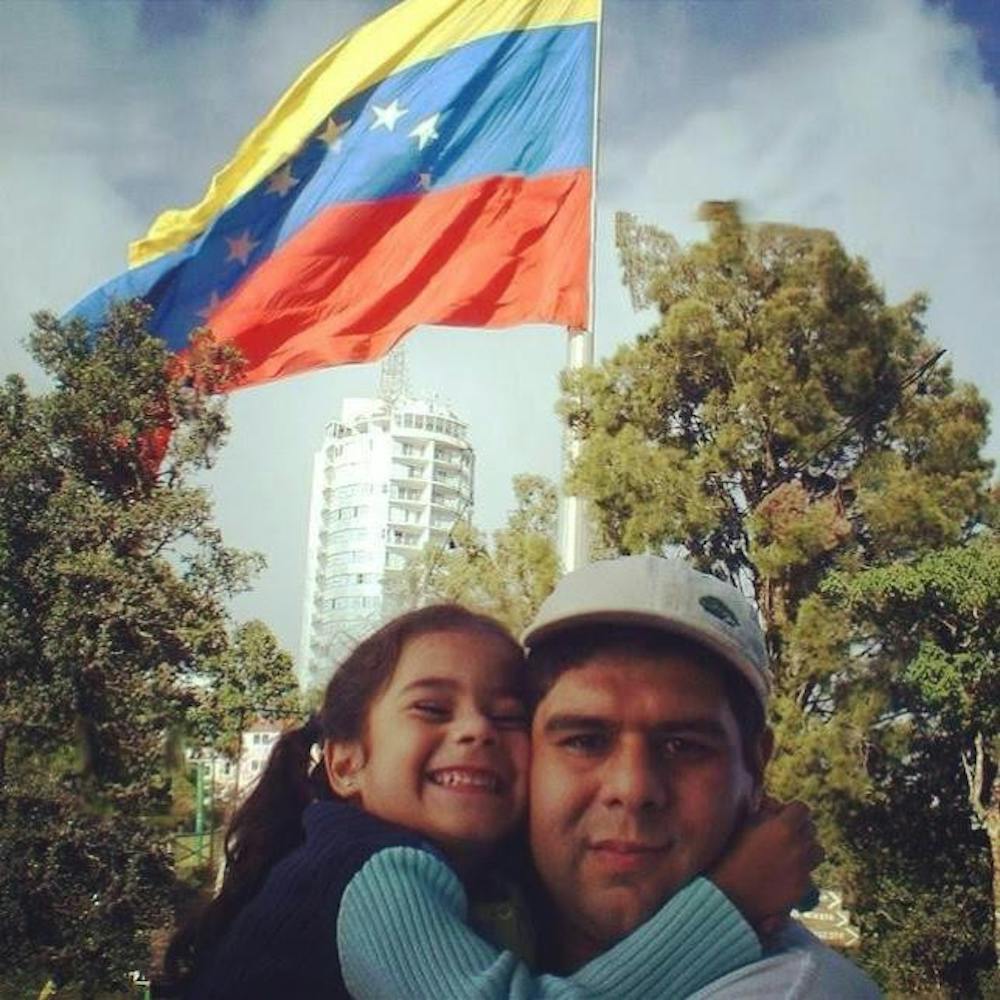This upcoming election is already extremely important, but as a native-born Venezuelan, exercising my right to vote as a naturalized U.S. citizen really means a lot to me.
I was born in 1999 in Caracas, Venezuela, only months after Hugo Chávez came to power. He ran a socialist campaign with a platform that intended to provide access to food, housing, education and health care for the Venezuelan people.
However, the legacy he left behind after his death in 2013 was nothing short of disastrous. During his presidency, the very areas he’d claimed he wanted to improve worsened. Inflation rates and poverty skyrocketed. There were shortages in supplies and access to food. He was known for censoring the media, manipulating laws in his favor and arresting any officials who voiced their disagreement. Both his administration and that of his successor, Nicolás Maduro, were corrupt and violent. When Chavez passed away, he left Caracas, Venezuela’s capital, one of the most dangerous cities in the world, with extremely high murder rates.
In my home country, there is no such thing as a fair vote. Although elections have taken place, there have been reports of stolen or burnt ballots, votes cast by people who were dead or not Venezuelan citizens, and censorship of any media that ran advertisements in opposition of Chávez.
It is the culmination of all of these issues in my birth country that makes me very mindful of my circumstances as a U.S. citizen. I try to be aware of the privileges being in this country provides me. While I am able to safely study here at Hopkins, I think of relatives who have had to pause their studies to protest on the street or to seek employment in order to bring more money into their households. While I walk into a single grocery store and find everything on my shopping list, I think of fellow venezolanos back home who use social media platforms such as Twitter to track down which supermarket in the city has chicken or beef in stock.
When I have a full plate of food in front of me for every meal, I think of how many Venezuelan kids much younger than me are barely surviving on an empty stomach. Even when I turn on the water in the sink, I think about close family members that need to ration out the water they receive for one hour a day when the power comes on.
You do not even need to go as far as Venezuela in order to find Latinos struggling to survive. In the United States, the largest growing minority group is Latinos. And while many are fortunate, like my family, to have a solid income, millions of others do not have the same luck. Many live in low-income areas, work blue-collar jobs or work for very little compensation in fields with harsh conditions. Latinos all over the U.S. also deal with everything from microaggressions in the workplace to stereotyping, profiling and discrimination, which can all escalate into violence.
There are also human rights violations toward Latinos happening under Immigration and Customs Enforcement custody at the Mexico-U.S. border. There, children are separated from their families, people are kept in cages, women are subjected to hysterectomies without their consent and Center for Disease Control COVID-19 regulations are completely ignored.
You cannot celebrate Latinx Heritage Month without actually supporting the populations of Latinos from which these cultures originate. Do not eat our tamales, our plantains, our arepas, our pão de queijos and our ceviches while ignoring the issues that are directly impacting Latinx people locally, nationally and abroad. Do not listen to reggaeton or dance to salsa or bachata if you are not ready to stand beside us on the street in protest of injustice and human rights violations. Do not post pictures of your trip to the beautiful beaches of Puerto Rico, Colombia, Mexico or Brazil if you discriminate against Latinx immigrants from those very countries for “stealing your jobs.”
If you are a U.S. citizen, your vote is your voice. Use it. If you are fortunate enough to be afforded some sort of privilege given your identity, take advantage and turn that privilege into powerful advocacy. Do not let the imperfections of both sides of the presidential ballot deter your vote; this election will not only determine the President of the United States, but it will also decide a third of the Senate, the entirety of the House of Representatives and various positions in local office.
So please vote, and vote with the struggles of other people in mind. Vote as if you are a recent immigrant to the United States. Vote as if you are a Black or Afro-Latinx individual who is seeing the racial violence happening on the news. Vote as if someone you loved just passed away from COVID-19. Vote as if you were a member of the disabled community or of the LGBTQ community. Just vote.
Isabel Rios-Pulgar is a senior studying Neuroscience and Psychology. She is an intern at the Office of Multicultural Affairs and Co-President of OLÉ, the JHU Latinx Student Group.
Find out how to register and receive your ballot via the mail at www.vote.gov.





